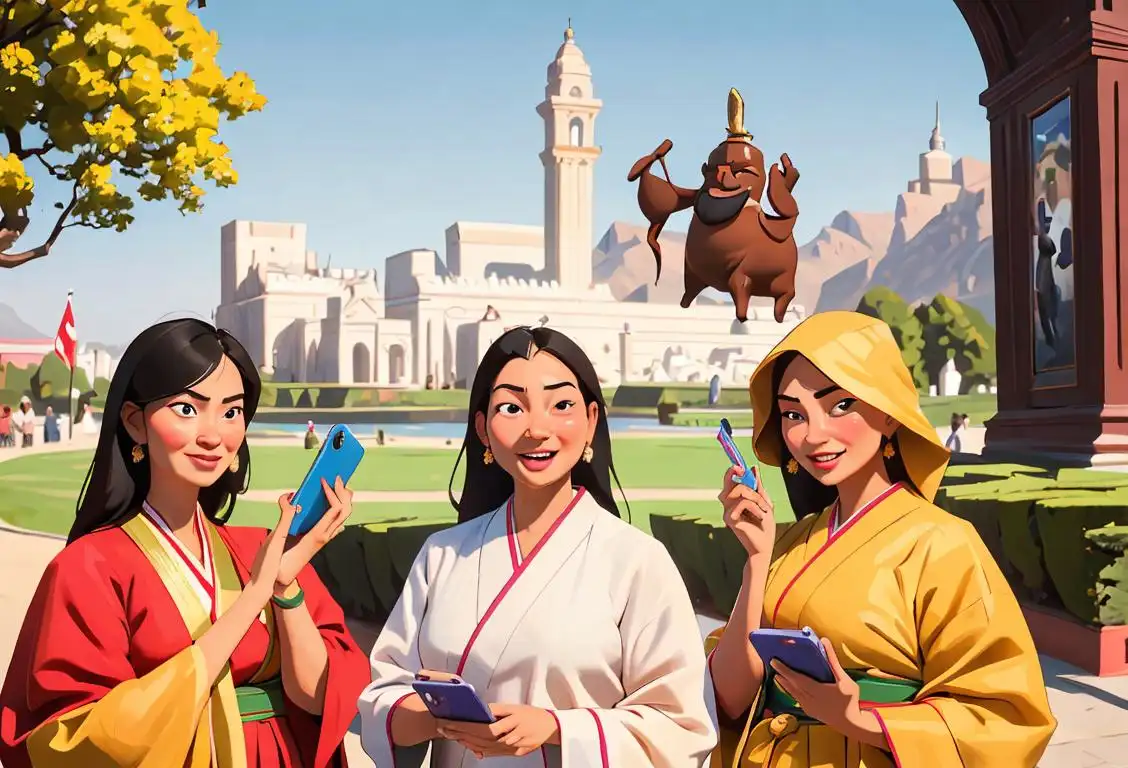National Area Code Day

Hey there, folks! Buckle up because we're diving into the fascinating world of National Area Code Day!
When is Area Code Day?
It's national area code day on the 10th November.
The Internet and the Patchwork of Area Codes
Picture this: It's the year 1947, you pick up your fancy dial telephone, and you're ready to chat with your BFF across the country. But wait, how do you dial up your long-distance bestie without any digits to guide you? Enter the glorious invention of area codes!
Since then, area codes have become an essential part of our daily lives. They help us connect with loved ones, order mouthwatering food deliveries, cheer on our favorite sports teams, and even explore the vast realm of telephone romance (who needs dating apps, right?). Let's dig deeper into the history!
The Birth of National Area Code Day
On a crisp November day in 2016, a group of tech enthusiasts and nostalgists came together to celebrate the wonder of area codes. They recognized the need for a day to honor these three-digit combinations that bring us all closer, regardless of the distance. And voilà, National Area Code Day was born!
People across the nation take this day to appreciate the complexity and diversity of area codes. From the bustling streets of New York City with its celebrated 212 area code to the laid-back vibes of Los Angeles with its iconic 310 area code, every code has a story to tell.
Fun Fact: Area Codes and Pop Culture
Did you know that area codes have influenced popular culture in more ways than one? Take a trip down memory lane and remember the iconic song by Ludacris, aptly titled 'Area Codes,' where he claims he has ladies in different area codes. Talk about a catchy tune that gets our hands tapping and our feet moving!
History behind the term 'Area Code'
1879
Invention of the Telephone
The first telephone was invented by Alexander Graham Bell in 1876, and it revolutionized communication. However, at that time, there was no need for area codes as telephone systems were primarily limited to a local area.
1947
Introduction of Direct Distance Dialing
As the telephone network expanded and long-distance calls became common, the need for a way to identify different geographic regions arose. In 1947, the Bell System introduced Direct Distance Dialing (DDD) for long-distance calls, which allowed callers to dial another city without operator assistance.
1951
First Use of Area Codes
The first use of area codes took place in 1951 in the United States and Canada. The North American Numbering Plan (NANP) was introduced, dividing the continent into various geographic areas. Each area was assigned a three-digit number called an area code, which was dialed before the local phone number to indicate the destination of the call.
1966
Standardization and Expansion
In 1966, the NANP expanded to include Caribbean countries and adopted a more standardized numbering plan. This plan included a total of 129 area codes, with each area code representing a specific region. The three-digit format allowed for easier identification and routing of calls within the growing telephone network.
1995
Introduction of Overlay Area Codes
With the rapid proliferation of telephone lines and the exhaustion of available area codes, overlay area codes were introduced in 1995. Instead of dividing existing areas, overlay area codes were created to serve the same geographic region as an existing area code. This allowed for the addition of more telephone numbers without changing the existing area codes.
2000s
Mobile Phones and Area Codes
In the 2000s, the widespread adoption of mobile phones led to the need for additional area codes. Mobile phone numbers were assigned area codes based on the geographic location of the user's service provider, contributing to the expansion of the numbering plan.
Did you know?
Fun Fact: Area Codes were initially created to facilitate long-distance calling, but now they've become a part of our cultural fabric. Who knew phone numbers could be so interesting?Tagged
romance fun loved onesFirst identified
10th November 2016Most mentioned on
10th November 2016Total mentions
41Other days
Love Your Red Hair Day
Do Something Nice Day
Suicide Prevention Month Day
Kissing Fried Chicken Day
Kiss A Ginger Day
Iloveyou Day
Compliment Day
Happiness Day
Tv On The Same Day
Boyf Day









